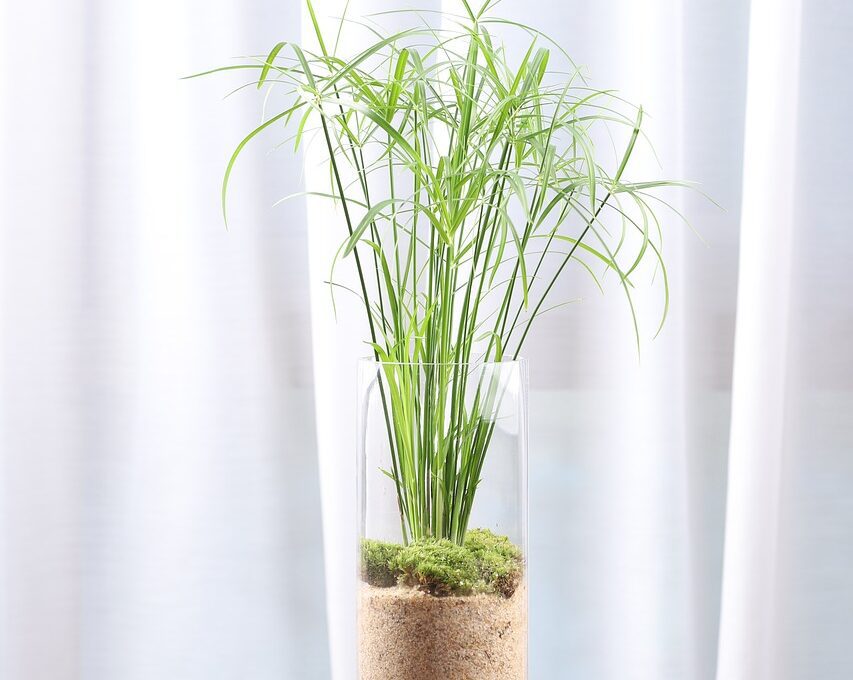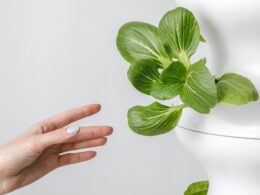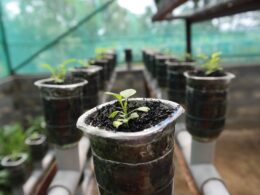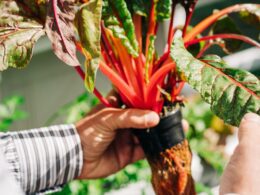Have you been considering starting a hydroponic garden but are worried about the noise levels? Many people are hesitant to start indoor gardening because they fear it will be too loud and disruptive to their home environment.
However, with the right techniques and equipment, hydroponic gardens can be quiet and peaceful additions to any home.
In this article, we will explore the factors that contribute to noise levels in hydroponic gardens, as well as tips for minimizing noise. We will also discuss alternative methods of indoor gardening and the benefits of hydroponic gardening.
By the end of this article, you will have a better understanding of how to create a quiet and enjoyable indoor gardening experience.
Understanding the Factors that Contribute to Noise Levels in Hydroponic Gardens
You’ll gain a better understanding of what makes the noise levels in indoor growing systems fluctuate by exploring the factors that contribute to their sound output.
In hydroponic gardens, noise levels can vary depending on several factors such as equipment placement, type of equipment used, and the size of the garden. For instance, pumps, fans, and air filters are the main sources of noise in hydroponic gardens.
The placement of equipment plays a significant role in determining noise levels. If equipment is placed close to the garden, it will create more noise than if it was placed far away. Additionally, the type of equipment used can also contribute to noise levels. Some equipment is designed to be quiet, while others are not. Therefore, it’s essential to choose the right equipment to ensure that it operates quietly and efficiently.
Overall, noise levels in hydroponic gardens can be reduced by proper equipment placement and selection. Keep in mind that the sound output in hydroponic gardens depends on the size of the garden and the amount of equipment used. Therefore, it’s crucial to assess the garden’s needs and choose equipment that is appropriate for its size and output.
By doing so, you can ensure that your hydroponic garden operates efficiently and quietly.
Tips for Minimizing Noise from Your Hydroponic Garden
If you want to enjoy a peaceful and quiet atmosphere in your indoor space, here are some great ideas for minimizing the noise coming from your hydroponic setup.
The first tip is to use noise reduction techniques such as using rubber mats to absorb vibrations. This can greatly reduce the amount of noise produced by your hydroponic garden.
Another technique is to use soundproofing materials like acoustic panels or foam to reduce the amount of sound that escapes your garden.
Another great tip is to choose the right type of hydroponic equipment. Some equipment can be noisier than others, so it’s essential to choose the ones that produce less noise. For example, air pumps can be quite loud, so choosing a quieter model can make all the difference. You can also opt for equipment that uses less energy as it tends to produce less noise.
Lastly, you can strategically place your hydroponic garden to minimize noise. You can place it in a room that is farthest from your living space or place it in a closet with soundproofing material. This can significantly reduce the amount of noise that reaches your ears.
With these tips, you can enjoy the benefits of your hydroponic garden without sacrificing your peace and quiet.
Alternatives to Traditional Hydroponic Gardening
If you’re looking for alternative methods to traditional hydroponic gardening, there are a few options to consider.
Aeroponics involves growing plants in a mist environment, while aquaponics involves combining hydroponics with fish farming.
The Kratky Method is a passive hydroponic system that doesn’t require any electricity or pumps.
Aeroponics
Aeroponic systems use misty bursts to nourish plants, creating a serene atmosphere for your indoor garden. Unlike traditional hydroponic gardening, aeroponics delivers nutrients directly to the roots of your plants in a more efficient manner.
Here are some benefits of using an aeroponic system for your indoor garden:
- Increased oxygen levels: Aeroponic misters provide plants with more oxygen, which encourages faster growth and healthier plants.
- Water conservation: Since aeroponic systems use mist instead of a continuous flow of water, they conserve water and reduce the amount of water needed for your garden.
- Space-saving: Aeroponic systems are often smaller than traditional hydroponic gardens, which means they take up less space and can fit in smaller indoor areas.
Overall, aeroponic systems are a great alternative to traditional hydroponic gardening, providing a quieter and more efficient way to grow your plants indoors. With aeroponic misters and nutrient delivery systems, you can create a peaceful oasis for your plants to thrive.
Aquaponics
You’re going to love aquaponics because it’s a sustainable and low-maintenance way to grow fresh produce and fish in your indoor space.
Unlike other hydroponic systems, aquaponics uses fish waste as a natural fertilizer for plants. The fish produce ammonia, which is then converted by bacteria into nitrates that the plants can absorb. This nutrient cycling creates a closed-loop system where the fish and plants benefit each other.
One of the great things about aquaponics is that it’s quiet. There’s no need for noisy pumps or aerators because the fish provide all the necessary nutrients through their waste. The only sound you might hear is the gentle trickle of water as it flows through the system.
So not only is aquaponics a sustainable and efficient way to grow fresh produce and fish, but it’s also a peaceful addition to your indoor space.
Kratky Method
The Kratky method is a simple and efficient way to grow plants in a hydroponic system. It’s perfect for those who want to grow fresh produce at home without the need for complicated equipment or constant maintenance.
Unlike other hydroponic systems, the Kratky method doesn’t require electricity or pumps, making it a cost-effective option for DIY Kratky setups. The efficiency of the Kratky method lies in its ability to provide plants with water and nutrients without the need for constant monitoring or adjustment.
The plants grow in a container filled with a nutrient-rich solution, and as they consume the nutrients, the water level in the container decreases. This creates an air gap between the solution and the roots, which allows the plants to access the oxygen they need to grow.
Overall, the Kratky method is an excellent choice for those who want to grow plants in a hydroponic system without the noise and maintenance that comes with other methods.
Benefits of Hydroponic Gardening
One advantage of hydroponic gardening is that it allows for optimal nutrient delivery to the plants, which leads to faster growth and healthier produce.
Here are some benefits that come with hydroponic gardening:
-
No soil: Hydroponic gardens don’t require soil, which means you don’t have to worry about soil-borne pathogens or pests. This also means you can set up your garden anywhere, regardless of the quality of your soil.
-
Water conservation: Hydroponic gardens use significantly less water than traditional soil-based gardens. In fact, some estimates suggest hydroponic gardens use up to 90% less water. This is because hydroponic systems recirculate water, so there is very little waste.
-
Vertical farming: Hydroponic gardens can be set up vertically, which means you can grow more produce in less space. This is particularly useful for urban areas where space is limited. Vertical farming is a form of sustainable agriculture that reduces the need for land, water, and other resources.
Overall, hydroponic gardening is a great way to grow fresh produce in a sustainable and efficient way. With the benefits of optimal nutrient delivery, no soil, water conservation, and vertical farming, it’s no wonder more and more people are turning to hydroponic gardening. So if you’re looking to start your own garden, consider giving hydroponics a try!
Conclusion: Hydroponic Gardens Can Be Quiet and Beneficial for Indoor Gardening
Now that you know the benefits of hydroponic gardening, you may be wondering about one potential drawback: noise. After all, you don’t want to invest in a hydroponic garden only to find that the equipment is too loud for your liking.
But the good news is that hydroponic gardens can be quiet, especially if you choose the right equipment. One of the main factors that affects the noise level of a hydroponic garden is the type of pump you use. Some pumps can be quite loud, but there are also many models that are designed to operate quietly.
Additionally, you can take steps to minimize noise by choosing a well-insulated location for your garden and adding sound-absorbing materials. Overall, the benefits of hydroponic gardening far outweigh any concerns about noise.
With indoor gardening techniques like hydroponics, you can grow fresh, healthy produce right in your own home, without the need for pesticides or other harmful chemicals. Plus, hydroponic gardens are space-efficient and use water more efficiently than traditional soil-based gardens.
So if you’re looking for a way to grow your own food and enjoy the many benefits of indoor gardening, a hydroponic garden is a great option to consider.
Frequently Asked Questions
What are the most common sources of noise in hydroponic gardens?
Vertical farming has numerous benefits, but one common concern is noise pollution. Luckily, there are several effective noise reduction techniques that can be implemented in hydroponic gardens. One way to reduce noise is by using sound-absorbing materials in the construction of the garden.
Another technique is to install sound barriers or partitions to reduce the spread of noise. Additionally, using quieter equipment and machinery can significantly reduce the noise level. By implementing these noise reduction techniques, you can enjoy the benefits of vertical farming without the worry of excessive noise.
Can noise from hydroponic gardens affect the health of plants or people?
Noise pollution can have a major impact on the health of plants and people in hydroponic gardens. Loud noises can cause stress and damage to the delicate roots and leaves of plants, and can even disrupt the growth cycle.
Additionally, excessive noise can be harmful to human health, causing headaches, elevated stress levels, and other negative effects. To reduce noise pollution in your hydroponic garden, there are several techniques you can try, such as using sound-absorbing materials or installing noise-reducing equipment.
By taking steps to reduce noise levels, you can help ensure a healthy and safe environment for both your plants and yourself.
How can I measure the noise level in my hydroponic garden?
If you’re concerned about the noise level in your hydroponic garden, there are a few ways to measure it. You can use noise measuring tools, like a decibel meter, to get an accurate reading of the sound level.
Once you know the level of noise, you can take steps to reduce it. Some noise reduction techniques include adding sound-absorbing materials, like acoustic foam or curtains, to your garden. You can also use noise-reducing fans or other equipment to decrease the overall sound level.
By taking these steps, you can create a quieter environment for your plants and yourself.
Are there any specific types of hydroponic systems that are quieter than others?
When it comes to hydroponic systems, there are two types to consider: passive and active. Passive systems are often quieter than their active counterparts because they don’t require pumps or other noisy components.
However, active systems can still be relatively quiet with the right soundproofing techniques. Using materials like mass-loaded vinyl or acoustic foam can help dampen the noise from pumps and other moving parts.
Additionally, placing your hydroponic garden in a separate room or using a grow tent can also help reduce noise. So, if you’re looking for a quieter hydroponic system, consider a passive setup or invest in some soundproofing techniques.
Can I use hydroponic gardening in an apartment without disturbing my neighbors?
If you’re looking to start hydroponic gardening in your apartment without disrupting your neighbors, there are a few things to keep in mind.
First, hydroponic gardens have many benefits such as cost savings and the ability to grow fresh produce year-round. However, they do require some initial investment in equipment and set-up. As a beginner, it’s important to do your research and follow hydroponic gardening tips for beginners to ensure success.
In terms of noise, hydroponic systems can be relatively quiet, especially if you choose a system with a submersible pump. Just be sure to place your system on a sturdy surface to minimize vibrations.
Overall, with proper planning and care, hydroponic gardening can be a great addition to your apartment without disturbing your neighbors.
Conclusion
In conclusion, hydroponic gardens can be a quiet and beneficial option for indoor gardening. By understanding the factors that contribute to noise levels in hydroponic gardens, such as water pumps and air stones, you can take steps to minimize noise. This includes choosing quiet equipment, isolating the garden from living spaces, and using sound-absorbing materials.
If noise is a concern, there are also alternatives to traditional hydroponic gardening, such as aquaponics or aeroponics, which use less equipment and produce less noise. Overall, hydroponic gardening offers many benefits, including the ability to grow fresh produce year-round, save water, and reduce the need for pesticides. So don’t let noise be a barrier to enjoying the benefits of hydroponic gardening in your home.









